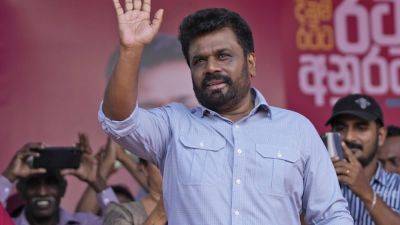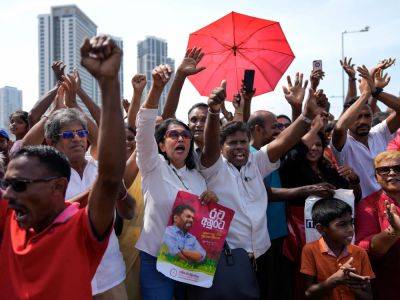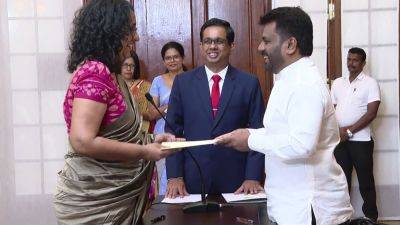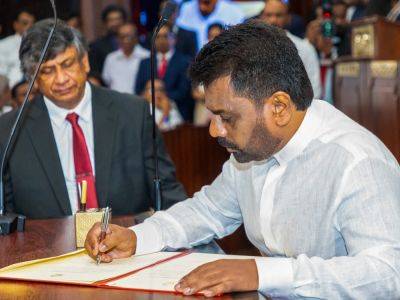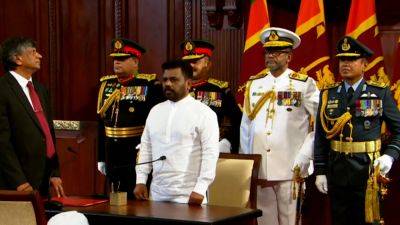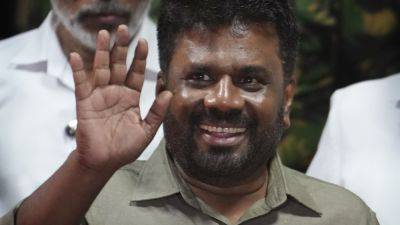Sri Lanka's Marxist-leaning Dissanayake in early lead to become president
Sri Lanka's Marxist-leaning leader, Anura Kumara Dissanayake, grabbed a commanding early lead on Sunday in his bid to become the next president of the debt-ridden country seeking to elect a leader to bolster its fragile economic recovery.
Dissanayake won about 53% of a million votes counted so far in the election, Sri Lanka's Election Commission data showed. Opposition leader Sajith Premadasa was second at 22%, ahead of President Ranil Wickremesinghe in third place.
About 75% of the eligible 17 million people in the Indian Ocean island nation cast their votes in Saturday's election, according to the poll body.
Dissanayake contested as candidate for the National People's Power (NPP) alliance, which includes his Marxist-leaning Janatha Vimukthi Peremuna (JVP) party that has traditionally backed stronger state intervention, lower taxes and more closed market economic policies.
Although JVP party has just three seats in parliament, the 55-year-old Dissanayake has been boosted by his promises of tough anti-corruption measures and more pro-poor policies.
He presented himself as the candidate of change, promising to dissolve parliament within 45 days of coming to power in order to seek a fresh mandate for his policies in the general elections.
"After a long and arduous campaign, the results of the election are now clear," Foreign Minister Ali Sabry said on X.
"Though I heavily campaigned for President Ranil Wickremasinghe, the people of Sri Lanka have made their decision, and I fully respect their mandate for Anura Kumara Dissanayake."
This was Sri Lanka's first election since the economy buckled in 2022 under a severe foreign exchange shortage, leaving the country unable to pay for imports of essentials including fuel, medicine


